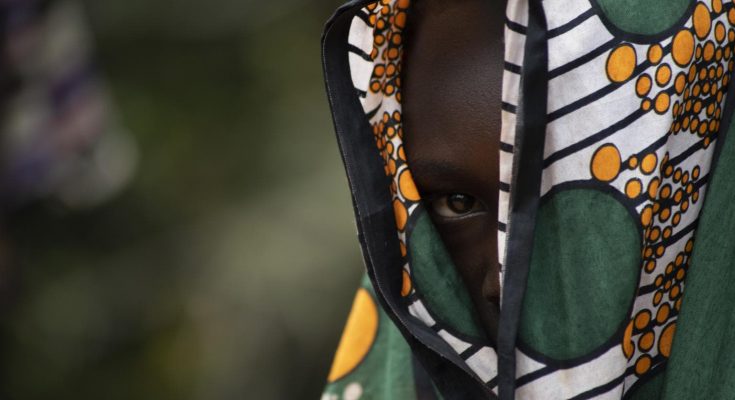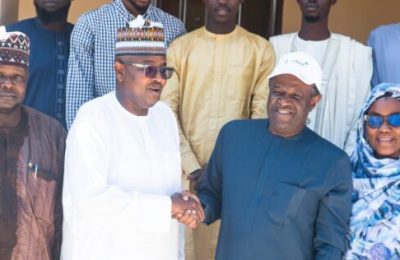THE National Coalition of Civil Society to End Child Marriage in Nigeria has raised an urgent concern, highlighting that social norms remain the most significant driver of child marriage in the country.
This observation was made during a media engagement recently, in collaboration with Girls Not Brides, a global partnership dedicated to ending child marriage.
Kolawole Olatosimi, the National Co-chair of the coalition, emphasised during the session in Abuja that while various factors such as poverty, ignorance and the aspiration to belong to a certain social class contribute to the prevalence of child marriage, it is ultimately social norms that continue to drive the alarming numbers.

Olatosimi’s remarks underscore the deeply embedded nature of societal beliefs and practices that sustain the harmful tradition of marrying off girls at a young age.
“Social norm is a big issue because it does not look at education or how rich you are,” Olatosimi stated. “Social norm has eaten deep and is contributing to child marriage in Nigeria because we have believed them to be normal. We need to start addressing it.”
These social norms, he explained, cut across all socioeconomic strata, impacting the rich and poor alike. The underlying cultural beliefs that normalise child marriage persist regardless of access to education or wealth.
As a result, child marriage continues to be prevalent even in households where there may be financial means or educational opportunities for girls. It is a reflection of how deeply entrenched the practice is in Nigeria’s cultural fabric, transcending economic and educational boundaries.

Olatosimi emphasised that changing these norms requires deliberate effort, particularly by promoting positive social practices that counteract the destructive ones currently in place. In this regard, he pointed out that the media plays a vital role in shifting mindsets, mentalities and behaviours that sustain child marriage.
“We need to start coming up with positive social practices,” he said. “There are lots of anomalies in our society; we need positive policies to deliberately end child marriage in Nigeria.”
He added that while the country has already made significant strides in terms of legal frameworks and policies to combat child marriage, further progress could be hampered if these laws remain unenforced. According to Olatosimi, the key issue is not the absence of laws but the need to focus more on implementing existing ones.
“We don’t need more laws and policies on child marriage if the media can talk more on the implementation of existing laws in Nigeria,” he noted.
He further explained that relying solely on legal frameworks is insufficient in the fight against child marriage. “We can’t use the law alone to fight child marriage. If we do not know how to change social norms, there will still be problems. Child marriage should not be a part of our society, we need to start creating a critical mass.”
Olatosimi called for a holistic, collective approach to ending child marriage in Nigeria. This effort, he said, must involve the government, civil society organisations (CSOs), the private sector, the media and local communities working together to change the status quo.
Addressing child marriage goes beyond advocacy; it requires practical solutions and sustained action.
According to Olatosimi, conscious and collective efforts are necessary to challenge the socio-cultural norms that keep girls from realising their full potential. The coalition, he emphasised, remains committed to fostering more significant engagements and increasing collective advocacy to tackle the problem head-on.
Quoting the findings of the Multiple Indicator Survey (MICS) 2021, Olatosimi revealed that a staggering 30.3 percent of girls in Nigeria are married before the age of 18 and 12.3 percent are married before they turn 15. These statistics paint a stark picture of the challenges Nigeria faces in curbing child marriage.
One of the most troubling aspects of child marriage in Nigeria is the regional disparity in its prevalence. Olatosimi highlighted areas in Nigeria where child marriage is especially high, noting that the numbers are disproportionately concentrated in certain northern regions.
In Bauchi State, for example, 73.8 percent of women aged 20 to 24 were married before they turned 18, according to the 2021 MICS. Furthermore, 49.2 percent of these women were married to men at least 10 years older than themselves. This significant age gap exacerbates the power imbalance in such marriages, limiting the autonomy of young brides and leaving them more vulnerable to exploitation, abuse and poor health outcomes.
Olatosimi also raised concerns over the high rate of teenage pregnancies in certain communities, particularly in Ondo State, where teenage pregnancy remains alarmingly high.
Child marriage is strongly associated with early pregnancy, which increases the risk of maternal and infant mortality, while also curtailing the educational and economic opportunities available to these young girls.
Child marriage not only harms the young girls who are forced into unions but also has far-reaching implications for Nigeria’s overall development. Early marriage curtails a girl’s education, limits her employment prospects and perpetuates a cycle of poverty.
Moreover, child brides are more likely to experience domestic violence, are at greater risk of health complications related to early pregnancy, and face restricted access to reproductive health services.
Furthermore, child marriage undermines efforts to achieve gender equality and reduces the economic productivity of entire communities. Girls who marry young are less likely to finish school, participate in the workforce, or contribute to the economy in meaningful ways. In this sense, child marriage is not only a violation of human rights but also an economic and developmental issue that affects the entire nation.
Addressing child marriage in Nigeria requires a multi-dimensional approach. Legal frameworks and policies must be reinforced with behavioral change initiatives that challenge long-standing social norms.
Olatosimi’s call for the media to take a leading role in promoting positive social practices is crucial in changing the narrative. By creating awareness, shifting public opinion and holding governments accountable, the media can help reduce the cultural acceptance of child marriage.
At the same time, efforts to educate families and communities about the harms of child marriage need to be scaled up. Empowering girls through education, promoting gender equality and enhancing economic opportunities for women are critical components of the solution.
Olatosimi’s address serves as a powerful reminder that while child marriage remains a significant challenge in Nigeria, it is a battle that can be won through concerted and collective action. The time to act is now and it requires the collaboration of all sectors of society to secure a brighter future for Nigeria’s young girls.
READ ALSO: Independence Day: IGP Egbetokun orders water-tight security nationwide







